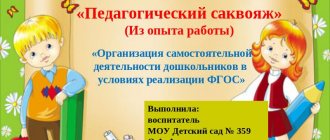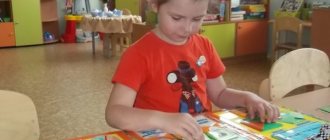Provisions of the educational standard
Since 2013, the Federal State Educational Standard has been included in every educational system. Within the framework of these standards, educational programs are created aimed at the development of children, in particular preschoolers. The provisions of the Federal State Educational Standard are based on the following conditions:
- various methods to diversify the childhood of wards;
- comprehensive development of the child;
- socialization through interaction with adults and children;
- respect for the personality of a preschooler;
- maintaining emotional well-being and psychological health;
- a special form of presenting information through creative activity, fairy tales, and research activities.
Particularly important is the moral and patriotic education of preschool children, which forms love for the country, pride in their people, and the desire to enrich the culture. The foundations of patriotism are laid in the family, while the methods of work of educators consist in developing and enriching the experience already gained. The provisions of the standard also emphasize the significance and characteristics of each age period. Classes are conducted in an unobtrusive environment, in a playful way or through a fairy tale, reflecting in the main characters the concepts of kindness, honesty, and courage.
Working with parents
The spiritual and moral education of preschool children according to the Federal State Educational Standard is impossible without close cooperation between the family and the kindergarten or center. Employees of preschool institutions are also interested in helping parents who find themselves in difficult life situations.
There are several forms of cooperation that are actively practiced.
Questioning
Conducting surveys on various topics makes it possible to study the characteristics of the family and draw up a social passport.
This technique is also practical. If it turns out that the family belongs to the disadvantaged category, then they begin to work with it using a different method.
Conducting parent meetings
These are mandatory accountable events. In recent years, so-called non-traditional parent meetings have become widespread, at which parents are invited to play games and complete quests.
Exhibitions showcasing the works of family creativity
A form of interaction when the teacher communicates not only with the child, but also with his family.
First, the teacher announces the theme of the exhibition, then collects the works and designs them. Those who actively participate are celebrated with various certificates and encouraged.
Conducting master classes for children with parents
These are thematic events to which they invite specialists or organize master classes on their own. The purpose of such events is to organize joint communication between the child and the parent.
Celebrations
This is a traditional technique when, by certain dates, children learn poetry and dances, parents buy costumes and organize tea parties. This practice has existed for a long time, but its forms are constantly changing in accordance with modern requirements.
They begin to prepare for the celebration of the “New Year” or “March 8” 1.5 months in advance. In addition, it is considered traditional for preschool educational institutions to hold the “Autumn Festival”, as well as to draw up a program of events dedicated to “May 9”.
Psychological aspect
Raising children is inextricably linked with psychological concepts. How a child’s cognitive skills and abilities are formed is an important component of the entire process of learning and upbringing.
From a psychological point of view, the approach to preschoolers should be based on the following principles:
- patient attitude towards the individuality of each participant;
- understanding the child’s characteristics;
- accepting the child's characteristics.
The preschool period is the most important part of childhood, which is closely related to the instability of emotions in children, incomplete understanding of their role and requirements for behavior.
A set of techniques and techniques that are used in preschool institutions helps children understand which forms of communication are sustainable and which are undesirable in society or the family.
Pedagogical basics
The spiritual and moral education of preschool children within the framework of the Federal State Educational Standard rests with representatives of preschool institutions, who must work in close cooperation with the parents of each child.
During the educational processes, the following cultural and pedagogical resources are used to achieve goals and objectives:
- literary methods;
- techniques of visual, song, musical, multimedia, local history;
- personal receptions;
- teamwork.


